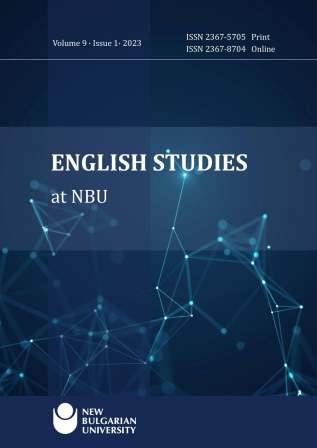A Transitivity Analysis of Prefaces Written for Modernist Novel (Re)Translations: Understanding Paratexts as a Tool of Recontextualization
A Transitivity Analysis of Prefaces Written for Modernist Novel (Re)Translations: Understanding Paratexts as a Tool of Recontextualization
Author(s): Neslihan Kansu-Yetkiner, Ilgın Aktener, Nazlıgül Bozok, Pınar Daniş, Aslı Melike Soylu, Aysu Uslu KorkmazSubject(s): Language and Literature Studies, Studies of Literature, Translation Studies
Published by: Нов български университет
Keywords: Paratexts; Transitivity; Recontextualization; Retranslations; Modernist Literature
Summary/Abstract: This study focuses on paratexts as recontextualization tools, specifically prefaces written for (re)translations, and problematizes Turkish (re)translations of modernist novels written in English, which, for reasons of morality, encountered legal difficulties, and were stigmatized, banned, or confiscated in the source culture. Recontextualization resonates with (re)producing ideologies, exposing various agents' deliberate power positions in determining discourse structures within the more general framework of Critical Discourse Analysis. Against this backdrop, this study, which is part of a larger project, has a twofold purpose: a) to evaluate 15 prefaces extracted from (re)translations of 10 modernist novels as a tool for recontextualization; and b) to investigate the preface discourse regarding the transfer of modernist novels into the target culture through the lens of transitivity analysis, based on Halliday's Systemic Functional Linguistics (SFL) model. SFL proposes that the main system by which experiential meaning is associated with process choices within the framework of ideational meta-function is transitivity; transitivity analysis is therefore applied to the prefaces to unveil the relationships established between the processes and the actors. The analysis of findings revealed that recontextualization was functionalized to create an explicit, rather than an implicit discourse structure through the intensive use of material processes. It concludes that prefaces written to (re)translations in Turkish context, as liminal devices between the fictitious and real worlds, are clearly instrumentalized to position the key players in the adaptation, promotion, and representation of these books within their new cultural context, and thus, were designed to influence the discourse surrounding the transfer of modernist novels into the target culture.
Journal: English Studies at NBU
- Issue Year: 9/2023
- Issue No: 1
- Page Range: 81-106
- Page Count: 26
- Language: English

